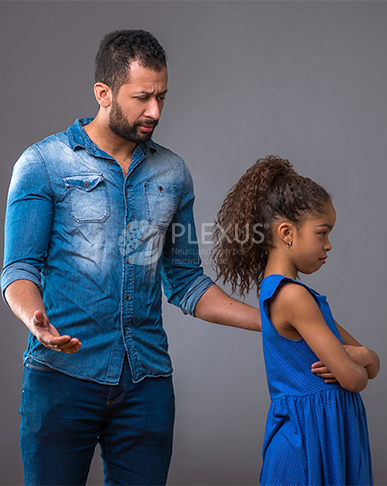- About Us
- Stem Cells
- Neurology
- Disorders
- Services
- All Therapies
- Regenerative Rehabilitation
- Rehabilitation for Stroke
- Rehabilitation for Spinocerebellar Ataxia
- Parkinson’s Disease Rehabilitation
- Multiple Sclerosis Rehabilitation
- Rehabilitation for Spinal Cord Injury
- Rehabilitation for Motor Neuron Disease
- Rehabilitation for Cerebral Palsy
- Brachial Plexus Injury rehabilitation
- Rehabilitation for Global Developmental Delay
- Childhood Disorders Clinic
- Outpatient Services
- Ask a question
- Request an appointment
- About Us
- Stem Cells
- Neurology
- Disorders
- Services
- All Therapies
- Regenerative Rehabilitation
- Rehabilitation for Stroke
- Rehabilitation for Spinocerebellar Ataxia
- Parkinson’s Disease Rehabilitation
- Multiple Sclerosis Rehabilitation
- Rehabilitation for Spinal Cord Injury
- Rehabilitation for Motor Neuron Disease
- Rehabilitation for Cerebral Palsy
- Brachial Plexus Injury rehabilitation
- Rehabilitation for Global Developmental Delay
- Childhood Disorders Clinic
- Outpatient Services
- Ask a question
- Request an appointment
Navigate Oppositional Defiant Disorder with Our Specialists
Does your child or teenager have a persistent pattern of anger, irritability, arguing, defiance, or vindictiveness towards you and other authority figures? Sometimes what is passed off as teenage rebellion may actually be a sign of Oppositional Defiant Disorder.
Let’s understand this disorder and also throw light on the benefits of treating oppositional defiant disorder at Plexus Bangalore and Hyderabad.


Decoding Oppositional Defiant Disorder
Oppositional Defiant Disorder is a condition in which a child or teenager displays a continuing pattern of uncooperative, defiant, hostile, and annoying behavior toward people in authority. This disruptive behavior affects their daily functioning, including relationships and activities with their home, school, or community.
Symptoms
The earliest signs of oppositional defiant disorder usually begin in children during their preschool years, although there have been cases where the symptoms have manifested later.
Causes of Oppositional Defiant Disorder
Biological factors
01 Biological factors
- Defects in or injuries to certain areas of the brain
- Presence of learning disorders
- Presence of mental disorders such as ADHD
Genetic factors
02 Genetic factors
Family history of mental disorders, including mood disorders, anxiety disorders, and personality disorders
Environmental factors
03 Environmental factors
- Dysfunctional family life
- Substance abuse
- Inconsistent discipline by parents or other authority figures
Treatments for Oppositional Defiant Disorder

The treatment for Oppositional Defiant Disorder depends on multiple factors, including the child’s age, the severity of their symptoms, and the ability to receive specific therapies.
We employ the following measures to help your child:
- Cognitive restructuring or reframing
- Exposure therapy
- Journaling and thought records
- Guided discovery
- Activity scheduling and behavior activation
- Relaxation and stress reduction techniques
- Behavioral experimenting
- Role-playing
- Providing a support network necessary for recovery
- Building self-esteem by focusing on problems and working toward their solution
- Turning negative thoughts into positive, more realistic ones
- Controlling anger and recognizing the reasons behind it
- Communicating feelings with other individuals
- Improving coping skills for stressful situations
- Preventing relapses with the help of necessary tools

Therapy for Oppositional Defiant Disorder at Plexus
Plexus specializes in offering holistic therapy for oppositional defiant disorder with a combination of the following:
What our patients say

Reshma, mother of Abdul (Name changed)
“My five-year-old child Abdul was sent back from school multiple times due to his temper tantrums and anger issues. He would not share things with his classmates and often pick up fights. After visiting Plexus, I realized that my child suffers from emotional dysregulation. After one month of treatment, I saw massive changes in his behavior. His stubbornness decreased, anger outbursts disappeared, and he started cooperating with his classmates and teachers at school. I am very happy to have this positive change in my child.”

Reshma, mother of Abdul (name changed)
“My five-year-old child Abdul was sent back from school multiple times due to his temper tantrums and anger issues. He would not share things with his classmates and often pick up fights. After visiting Plexus, I realized that my child suffers from emotional dysregulation. After one month of treatment, I saw massive changes in his behavior. His stubbornness decreased, anger outbursts disappeared, and he started cooperating with his classmates and teachers at school. I am very happy to have this positive change in my child.”
Naveen, father of Dev (name changed)
"I was unable to manage my teen's behaviours. I was getting a lot of complains from his class teacher too. Poor performance in academics, stubborn attitude and severe anger outbursts were some of the major complains that brought me to Dr Sadiq. I am so glad I found Plexus. Right from the medications to the counselling sessions to the therapy, everything helped my child overcome his issues. Behaviour therapists helped me understand my childs's behaviour and gave me ways to tackle it. I don't think any parent should ignore the behavioural problems of their children especially teenagers and they should definitely sought treatment at Plexus.
FAQs answered
The exact cause of Oppositional Defiant Disorder is still unknown. However, researchers have found that it is often caused by a combination of biological, genetic, and environmental factors. These include defects or injuries to certain areas of the brain, family history of mental disorders, dysfunctional family life, substance abuse, and inconsistent discipline by parents or other authority figures.
WIth proper diagnosis and treatment from a renowned neurological center like Plexus, children with Oppositional Defiant Disorder do improve over time. Research has shown that signs and symptoms resolve within 3 years in approximately 67% of children diagnosed with the disorder.
There is no single treatment for children and adolescents experiencing Oppositional Defiant Disorder (ODD). It depends on multiple factors, including the child’s age, the severity of their symptoms, and the ability to receive specific therapies. Moreover, the most effective treatment plan will be tailored to the individual needs of each child and family. Usually, it is a combination of the following therapies:
- Occupational Therapy
- Behavior Therapy
- Sensory Integration Therapy
- Emotional Regulation Therapy
- Anger Management
There is no assured way to prevent Oppositional Defiant Disorder. In children, parent management, social skills training, conflict resolution and anger management programs can result in varying degrees of success. For adolescents, psycho-educational programs, including cognitive interventions and skills training, vocational training, and academic preparations can help improve behavior and manage the early symptoms.











